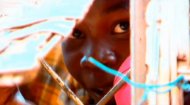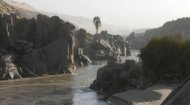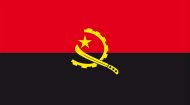|
|
|
Angola Profile |
Angola Profile |
Angola Profile | Angola Profile |
Facts, figures and video with details of projects and programs supporting street children in Angola.
More >
A video documentary about the situation of refugees from Angola who are living in refugee camps.
More >
|
|

 Half of all children in Angola live below the poverty line, just 51% of the child population has access to safe water supplies and 16% of all children are underweight. Yet, despite a high level of disease and low take up rates of education, improvements are being felt across the country as stability takes hold. Despite this, there are thousands of children living on the streets of Luanda, living in extreme poverty and at risk of emotional, physical and sexual exploitation. And children across Angola have been affected by the decades of war, facing displacement, violence, starvation and the loss of family members, scarring them for life. Synopsis: Angola is about five times the size of the UK although its population is about half at 35.59 million (2022). It is still rebuilding after a 27 year civil war that ended in 2002. . |




















